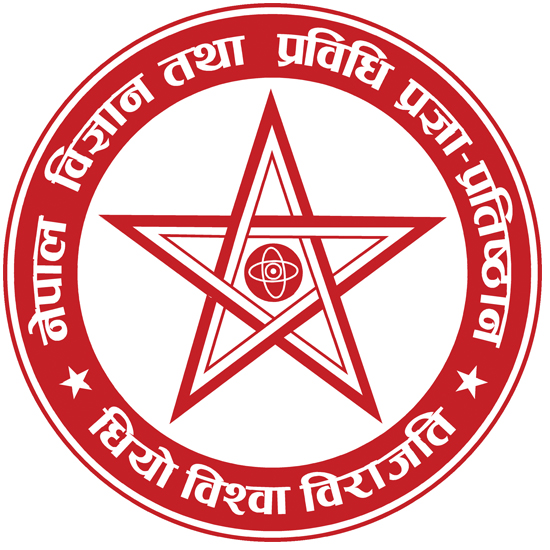Deepa Shree Rawal, PhD
Coordinator
Chief Scientific Officer
Email- [email protected]
Tel:+ 977 1 5547715 ext 258
Background
Environment research laboratory conducts research on environment, climate and biodiversity conservation related issues. Major programs of this laboratory are Water quality monitoring, purification, treatment and analytical service; Biodiversity conservation and climate change in relation to Ex situ seed conservation via seed banking and carbon measurements and carbon cycle research.
Current Research Activities
1. Water quality monitoring, purification and its treatment
Water Quality Monitoring
The purpose of this program is to test the quality of water in community drinking water sources. Initially, this program will cover the districts of Far Western Province and will gradually test the quality of community drinking water sources available in other parts of the country. This program will help to prepare baseline data on the quality of community drinking water.
Water Quality and purification Research and Analysis Service
Water quality analytical service: Water quality testing program was carried out since 2002. Major sample types for this program are drinking and recreational water and parameters analysesed are pH, temperature, turbidity, electrical conductivity, chloride, total hardness, iron, ammonia, nitrate, arsenic, total coliform count, E.coli count etc.
Water Quality and Purification: Surveillance of drinking water quality such as supply water, processed drinking water, tanker water, stone spouts, groundwater and surface water (Since 2002).This program disseminates laboratory findings to general public and provides ‘Lab to land’ awareness on safe drinking water and sanitation practices.
Drinking water Treatment (bench Scale)
• Removal of Organic and Inorganic Arsenic using adsorbents (Since 2017)
• Removal of Bacteria, Ammonia and Turbidity from water (Since 2022)
• Arsenic contamination in Environment (Groundwater, soil and rice grain) (Since 2022)
• Microplastic pollution in Urban aquatic Systems (Phewa lake, Nepal) (Since 2021)
• Microbial diversity and antibiotic resistance in wastewater (sewage, pharmaceutical and hospital wastewater) (Since 2022)
Externally Funded Research Project: UNESCO-Organization for Women in Science for the Developing World (OWSD) Early Career Fellowship 2019-2022 (Dr.Tista Prasai Joshi)
2. Seed Conservation- NAST Seed Bank
Ex situ conservation via seed banking: Seed conservation program aims to conserve seeds of wild plant species from different geographic areas of Nepal to aid conservation of plant biodiversity of Nepal. Currently running Seed bank of NAST was established as Himalayan Seed bank (HSB) in collaboration of EVK2CNR ,the University of Pavia, Italy and NAST (2010-2015) for the purpose of ex-situ conservation of wild, endemic and medicinal high altitude plant biodiversity of Nepal. Under this program seeds of wild plant species are collected from different forest types of Nepal every year. Collected seeds are curated and conserved under -20°C in the seed bank of NAST. There are seeds of 285 plant species conserved in NAST seed bank. These seeds can be used for research, reintroduction and rehabilitation of forests in the future.
Utilization of Seed Phenological Modeling Tool for species resilience to Climate Change: Biodiversity conservation research activity focuses on implementing seed phenological model for the prediction of species resilience to climate change that aids in biodiversity conservation.
This program implements seed physiological and germination phenological traits and utilize phenological, a mechanistic modeling tool for the prediction of future plant regeneration and seedling establishment resiliency to the projected climate change. Thus, this program aids in future forest management and climate change adaptation issues that has biodiversity conservation implication.
3. Carbon measurements and carbon cycle research
Carbon exchange between ecosystem-atmosphere in terrestrial ecosystem that includes measurements of soil carbon dioxide emissions i.e. soil respiration; autotrophic and heterotrophic respiration, micrometeorological data, plant growth and production, soil characteristics via physical and chemical properties, ecosystem management, land use change, impact of warming and climate change on plant and elevation gradient effect, and ecosystem function. The research of carbon cycle at NAST was initiated since 2012 to present in various ecosystem level in the different region of Nepal.
Team Members
1. Dr. Deepa Shree Rawal, PhD ([email protected]; [email protected])
2. Dr. Bhoj Raj Pant, PhD ([email protected]; [email protected])
3. Dr. Anjana Giri, PhD ([email protected]; [email protected] )
4. Dr. Tista Prasai Joshi, PhD ([email protected]; [email protected])
5. Dr. Deepa Dhital, PhD ([email protected]; [email protected])
6. Ms. Sarala BC ([email protected])
